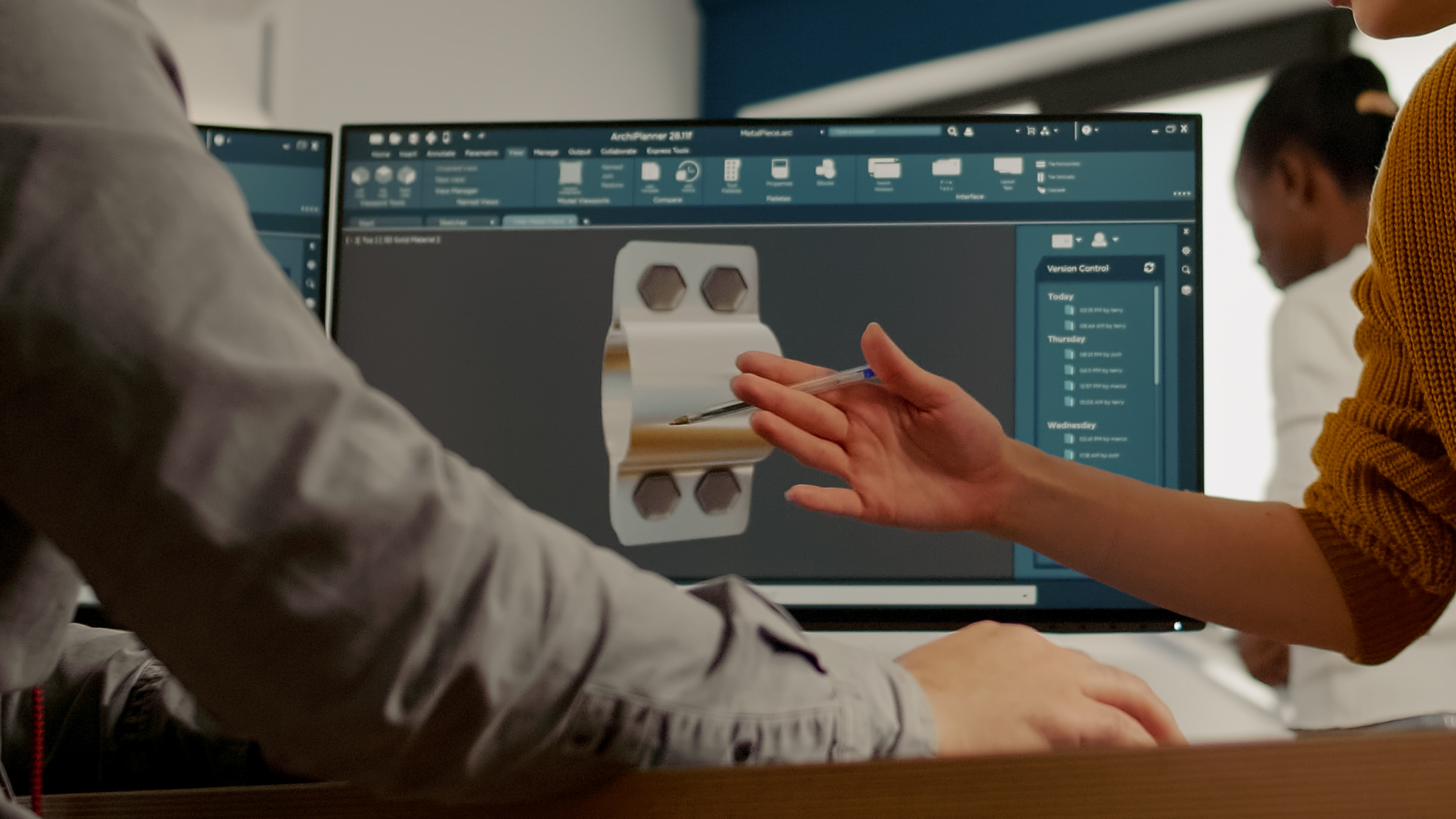Products that appeal to your customers are often designed by industrial designers. Some of them can also utilize 3D CAD tools like Solidworks or Autodesk Inventor to create prototypes because they have the fundamental engineering knowledge and skills necessary. Others focus on specific product categories including footwear, furniture, consumer electronics, and more, while some industrial designers are generalists who work on a range of products.
It can be difficult to locate the perfect remote industrial designer if you’re looking to engage one to create new goods for your business. Learn what criteria may be perfect to find an industrial designer who meets your demands, and what are some important factors to take into account before hiring an industrial designer.
How Do I Hire a Remote Industrial Designer
To hire a remote industrial designer, you can follow these steps:
1. Define your requirements:
Clearly outline the scope of the project and the specific skills and experience you’re looking for in an industrial designer. Consider factors such as the industry, type of products, software proficiency, and any specific design aesthetics.
2. Prepare a job description:
Write a detailed job description that includes the project requirements, expected deliverables, and desired qualifications. Specify that you are looking for a remote industrial designer to ensure you attract relevant candidates.
3. Post the job online:
Utilize online platforms and job boards that specialize in remote work or industrial design. Provide all the necessary details about the job and invite interested candidates to apply.
4. Review Plan:
While receiving applications, carefully review each candidate’s portfolio and resume. Look for relevant experience, examples of industrial design projects, proficiency with design software, and a good fit with your requirements.
5. Plan interviews:
Shortlist the most promising candidates as per needs and schedule interviews. You can conduct interviews via video calls or phone calls to assess their skills, experience, and communication abilities. Prepare a set of questions to evaluate their expertise in industrial design, problem-solving abilities, and their approach to remote work.
6. Request work samples or a test project:
To further assess the candidate’s skills, you can request work samples or assign a small test project that simulates the type of work they would be doing for your company. This can help you gauge their creativity, attention to detail, and ability to meet deadlines.
7. Check references:
If a candidate impresses you and seems like a potential fit, ask for references from their previous clients or employers. Contact these references to gain insights into the candidate’s work ethic, reliability, and collaboration skills.
8. Discuss terms and agreements:
Once you’ve identified the ideal candidate, discuss the terms of the project, including compensation, payment structure, project timeline, and any contractual agreements. Ensure you have a clear understanding of each other’s expectations to avoid any future conflicts.
9. Provide clear briefs and regular communication:
As you begin working together, provide detailed briefs, including project objectives, design constraints, and any specific requirements. Maintain regular communication channels to keep the designer updated on the progress, provide feedback, and address any questions or concerns.
10. Evaluate performance:
Regularly assess the designer’s performance and the quality of their work. Provide constructive feedback to help them improve and address any issues that may arise. If necessary, adjust the scope or project timeline based on the designer’s capabilities and progress.
What are the Pros of Hiring Remote Industrial Designers?
Hiring remote industrial designers offers several advantages:
1. Access to a global talent pool:
By hiring remotely, you can tap into a much larger talent pool, as you’re not limited by geographical location. This allows you to find highly skilled industrial designers from around the world, potentially increasing the chances of finding the perfect fit for your project.
2. Cost savings:
Remote work arrangements often result in cost savings. You can avoid expenses associated with maintaining physical office space, such as rent, utilities, and equipment. Additionally, hiring remote designers may offer cost advantages depending on the local economies and exchange rates.
3. Flexible collaboration:
Remote work allows for flexible collaboration. With the right communication tools and project management systems in place, you can collaborate with designers across different time zones and work at your convenience. This flexibility can lead to increased productivity and faster project turnaround times.
4. Diverse perspectives and creativity:
Hiring remote industrial designers can bring a diverse range of perspectives and cultural influences to your projects. This diversity can foster creativity and innovation, leading to fresh ideas and unique design solutions.
5. Increased focus and autonomy:
Remote work often provides designers with increased focus and autonomy. Working in their preferred environment, designers can minimize distractions and create a work routine that suits their productivity style. This can lead to higher quality work and greater job satisfaction.
Although you can effectively hire a remote industrial designer who aligns with your project’s requirements and contributes to your design goals, you can skip these steps by choosing Remotal to hire the perfect remote industrial designer for your business.
Remotal finds, hires and manages fully vetted top quality remote talent in Mexico City for US based companies looking for creative talent la industrial designers, 3D animators, renderers, graphic designers, architects and interior designers.
If you want to learn more about how Remotal can assist you with your hiring needs, please contact us, and let’s schedule a call.
Remotal is the right connection to Remote talent.
